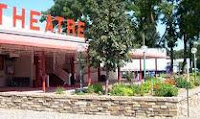"About « Citizen Jane." Citizen Jane. Web. 16 Mar. 2011. <http://www.citizenjanefilmfestival.org/?page_id=2>.
"Education: Spouse Trap - TIME." Breaking News, Analysis, Politics, Blogs, News Photos, Video, Tech Reviews - TIME.com. Web. 27 Apr. 2011. <http://www.time.com/time/magazine/article/0,9171,848775,00.html>.
Harling, Robert. "Stephens College : Okoboji Summer Theatre - Performance Schedule." Stephens College - Educating Women since 1833 - Columbia, MO. Web. 10 Feb. 2011. <http://www.stephens.edu/news/stephensevents/okoboji/>.
Jones, Stephanie. "A Joan Crawford Encyclopedia: W." The Best of Everything: A Joan Crawford Encyclopedia. Web. 18 Mar. 2011. <http://www.joancrawfordbest.com/w.htm>.
Jones, Stephanie. "Joan Crawford Biography." The Best of Everything: A Joan Crawford Encyclopedia. Web. 23 Feb. 2011. <http://www.joancrawfordbest.com/biography.htm>.
Karstens, Danielle. "Odd Men Out: Why 17 Men Attend Stephens College." Columbia Missourian. Web. 18 Mar. 2011. <http://www.columbiamissourian.com/stories/2009/01/30/male-apprentices-stephens-dance-program/>.
"Stephens College: About Stephens - History." Stephens College - Educating Women since 1833 - Columbia, MO. Web. 3 Feb. 2011. <http://www.stephens.edu/stephens/history/>.
"Stephens College: News and Events-For the Media." Stephens College - Educating Women since 1833 - Columbia, MO. Web. 3 Feb. 2011. <http://www.stephens.edu/news/media/mediakit/>.
"Stephens College: Stephens at True/False Film Festival." Stephens College - Educating Women since 1833 - Columbia, MO. Web. 16 Mar. 2011. <http://www.stephens.edu/news/spotlight/truefalse_2011.php>.
"Stephens College Press Release." Stephens College - Educating Women since 1833 - Columbia, MO. Web. 24 Feb. 2011. <http://www.stephens.edu/news/media/releases/2010/04_09_10Sampson.php>.
"Zielinski | About." Zielinski | A Film by Chase Thompson / Ryan Walker. Web. 25 Mar. 2011. <http://zielinskifilm.com/about>.
 Consider the following picture. Do you see a rabbit or a duck? One may see a rabbit continuously and then one day look at it and suddenly see a duck. It is all about perspective. Throughout this blog, there are various perspectives of Stephens College. Seeing Stephens College through these different perspectives changes the way one could see it. Stephens College has changed throughout its life as a school. Gender relations play a major role in the transformation of Stephens especially with its decision to admit men. The role that women are perceived as has changed dramatically over the course of Stephens’ life. Although, Stephens can not be described as simply as a rabbit or duck, its changing perspective gives way to different ideas about the school and the roles it has played since it was established.
Consider the following picture. Do you see a rabbit or a duck? One may see a rabbit continuously and then one day look at it and suddenly see a duck. It is all about perspective. Throughout this blog, there are various perspectives of Stephens College. Seeing Stephens College through these different perspectives changes the way one could see it. Stephens College has changed throughout its life as a school. Gender relations play a major role in the transformation of Stephens especially with its decision to admit men. The role that women are perceived as has changed dramatically over the course of Stephens’ life. Although, Stephens can not be described as simply as a rabbit or duck, its changing perspective gives way to different ideas about the school and the roles it has played since it was established.




